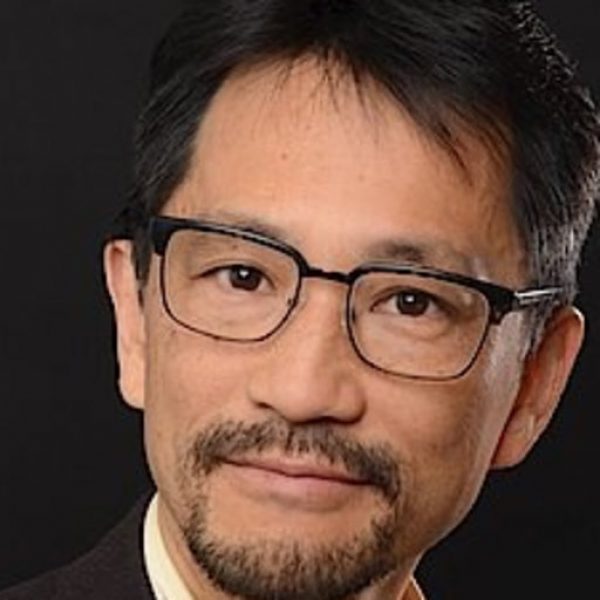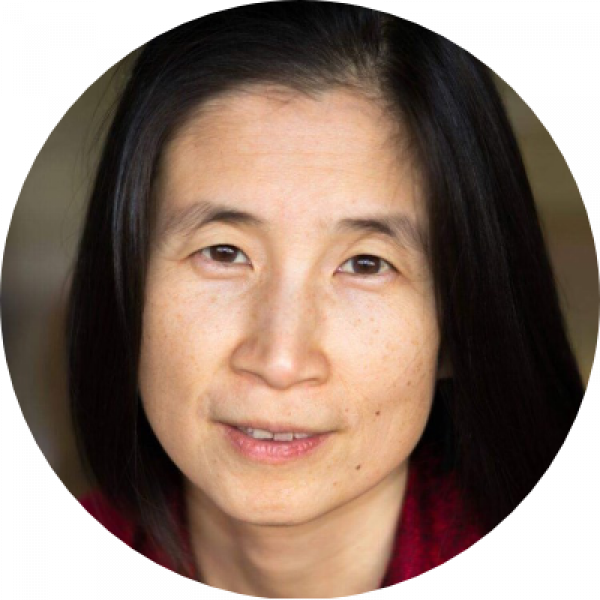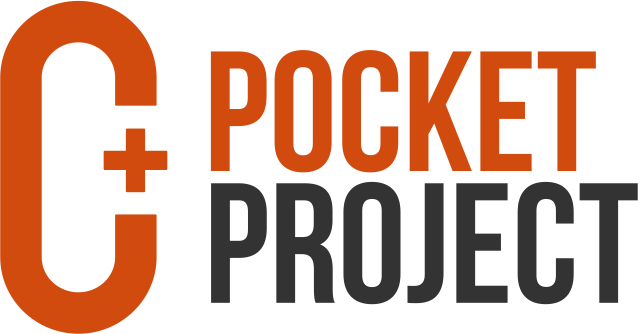Collective & Transgenerational Trauma in Japan
Lab Cycle Oct 2020 - July 2021 Report
Facilitators
Kazuma Matoba, Mari Sawada
Trainees
Miki Butler Morimoto
LANGUAGE
Japanese
Description
This Lab looked at trauma in the context of Japan. Here we first present some key characteristics that describe the country setting in which the traumas that this Lab addressed are situated.
The Japanese education system has been shaping young people to follow orders, to be precise and to fit into the given system, yet when it comes to thinking independently and taking initiatives to change things in the establishment, there is little in terms of schooling and preparedness. Instead, there is a general tendency in Japan to avoid confrontation and to instead keep up with the prevailing opinions.
The accident in the Japanese Fukushima power plant in 2011 – and the limitations of how the Japanese society coped with it – brings to light one of the issues that is not yet integrated from Japan’s history. It is important to note that Japan is the only nation that has experienced the atomic bomb. The country has also built power plants on earthquake-prone islands, yet the nation was clearly not prepared to then make effective decisions to minimize the pollution and protect its people or the rest of the world when the Fukushima accident took place.



We explored the following questions:
- What constitutes the historical background to the current situation in Japan?
- How does collective and intergenerational trauma influence the construction of identity and the process of ‘othering’?
- How does collective and intergenerational trauma influence the development of the cultural architecture?
- How does our use of language reflect and reinforce the consequences of this trauma?
- How does collective and intergenerational trauma show itself in times of crisis (e.g. Covid 19, climate emergencies, etc)?
- Can coherent ‘we-spaces’ and a process of witnessing collective and intergenerational trauma lead to an integration and eventual healing of collective trauma?
Stages of our process as a group:
2. Meeting the Collective Trauma Landscape
3. Exploring Individual & Collective Conditioning
4. Listening to Ancestral Roots & Voices from the Field
6. Transforming & Meta-learning
Moments of Challenge
One big challenge we faced was when two of the three trainees left the team. Around the same time, some of the participants also left the Lab.
Another ongoing challenge was that of the collective trauma not being expressed openly. In Japan, it is a cultural norm to not talk openly about uncomfortable things. Also, in the Japanese culture, it is considered very important to be respectful and to not disrupt the harmony. In addition, there is strong peer pressure to behave like others. Perhaps as a result of these cultural traits, we did not experience open conflicts in the sessions. Rather, when criticism arose, we received these in the form of impersonal written messages or indirectly by somebody else.
In addressing collective trauma, however, it is inevitable to feel, perceive and express unpleasant feelings and experiences. Although our participants did to some extent go through this already by just deciding to join and participate in the Lab, there might still have been too big a hurdle for them to really confront themselves and the group and to go deeper into sharing and integrating the arising trauma. As a result, the sessions proceeded for the most part fairly harmoniously and chances are that many painful emotions and thoughts probably remained unexpressed.
MOMENTS OF GRACE
- The Facilitation team considered it a moment of grace to even get an opportunity and invitation to facilitate this Lab.
- Another moment of grace arose when the trainees questioned the coherence of the Factiliation team, the latter considering it a gift to to be nudged to also address their own relationship with one another.
- Moments of grace were also present when ancestral voices came through the Lab participants, as already mentioned above.
INSIGHTS
- One of the main learnings for the Facilitation team was the importance of building a closed-meshed relational space, cultivated by the small groups that were formed in the last five weeks of the Lab journey. In retrospect, this should be set as a main focus.
- Another important insight was given by one of our trainees, Youki, who is a therapist, who told us that in a therapeutic setting, it would be common to first meet each participant one by one to get to know them a little before the group work starts. This could be tested in a future cycle of Labs.
- We also learned that it would be more beneficial to start the small groups and/or triads earlier in the process.
- Another point of learning was the importance of going slowly, step by step, together with the participants. This is particularly important for any moments when strong emotions are evoked, but not only then. It is important for the Facilitation team to pause more often, to feel and sense what is moving inside each one of us, and to share this openly in the group. This would help to cultivate and maintain coherence.
- Another insight came at the end of the Lab, which related to the realisation that trauma is not something that we necessarily should want to get rid of, but rather something to learn to better live with. For several of the participants in this Lab, the original fear of touching and facing trauma had by the end of the Lab changed to a sense of familiarity, and to something that we encounter daily and that we can give space to.
- It was wonderful and truly effective and meaningful to integrate art into the sessions. Using color and poetry enabled us to tap into layers of trauma that would have otherwise probably been less accessible had we only approached them from the rational mind.
- We also became aware that in order to look at the collective trauma of Japan, it is also necessary to have the view of non-Japanese. For this reason, it would be interesting and desirable to have more non-Japanese participants in some future Lab cycles.
Our Lab Team

Kazuma Matoba

Mari Sawada
日本における集団的・世代を超えたトラウマ
ファシリテーター: 的場主真、澤田麻理; 研修生: 加藤夕貴, 森本バトラーみき, 秋元香里
言語: 日本語
 2011年福島原発事故が起こり、日本社会がそれに対して充分に適切な対処ができなかったことは、日本の歴史の中でもまだ統合されていない問題の一つを浮き彫りにしているように思われる。唯一の原爆体験国である日本が、地震の多発する島国に世界で5番目に多い発電所を建て、いざ事故が起きてしまった時に、放射能汚染を最小限に抑え、人と地球を守るために有効な判断を下せるように社会の準備ができていなかったのである。日本の教育システムは、若者たちを、命令に従い、几帳面で、既存のシステムに適応できるが、自分で物事について考え、確立されたものを変えようとする主体性を持たないように教育してきた。対立を避け、大勢の意見に従う傾向が一般的である。これが私たちの探究の一つの出発点である。
2011年福島原発事故が起こり、日本社会がそれに対して充分に適切な対処ができなかったことは、日本の歴史の中でもまだ統合されていない問題の一つを浮き彫りにしているように思われる。唯一の原爆体験国である日本が、地震の多発する島国に世界で5番目に多い発電所を建て、いざ事故が起きてしまった時に、放射能汚染を最小限に抑え、人と地球を守るために有効な判断を下せるように社会の準備ができていなかったのである。日本の教育システムは、若者たちを、命令に従い、几帳面で、既存のシステムに適応できるが、自分で物事について考え、確立されたものを変えようとする主体性を持たないように教育してきた。対立を避け、大勢の意見に従う傾向が一般的である。これが私たちの探究の一つの出発点である。
全体的な研究課題
- 現在の日本はどのような歴史を経験してきたのだろうか?
- 集合的・世代を超えたトラウマは、アイデンティティの構築や「他者化」のプロセスにどのような影響を与えているのか?
- 集合的・世代を超えたトラウマは、文化形成にどのような影響を与えているのか?
- 私たちの言語の使用は、このトラウマの影響をどのように反映し、強化しているのか?
- 集合的・世代を超えたトラウマは、危機の時代(例:コロナヴィールス、気候変動)において、どのような形で現れるのか?
- グループとして一体感を感じる「we space」を築き、集合的・世代を超えたトラウマに向き合うプロセスは、集合的トラウマを統合し、最終的には癒すことにつながるのだろうか?
ラッブの参加者一人一人に問うてもらいたいことは何ですか?
- 私はどのようにしてこのトラウマの統合に携わり、どのようにしてトラウマを継続させているのか?
- 私の先祖はどのようにしてこのトラウマの継続およびその統合に携わってきたのだろうか?
- 私はどのようにして「他者化」に加担し、また、相互共存に貢献しているのか?
- 私の特権や特権の欠如は、このトラウマとどのように絡み合っているのか?
- 麻薬の使用を禁じます。
- 守秘義務 ー このラブ内で話された内容に関してはラブ以外の場で口外しないでください。また、参加者の名前も公表しないでください。
- 健康維持の義務 ー このラブではいかなるセラピーも治療行為も行いません。
最大グループサイズ: 30
会合の頻度と期間: 3週間に1回、90分のセッション
ラッブチーム
 的場主真
的場主真
神戸生まれ。日本で言語学修士課程修了後、ドイツに渡りコミュニケーション論で博士課程ならびに教授資格獲得。ミュンヘン国防大学にて異文化教育講座の教授等を経て、現在はヴィッテンヘルデッケ大学でコミュニケーション論の教鞭をとる。トーマス・ヒューブルの主宰するAcademy of Inner Scienceにて、修士課程、博士課程の学科長を兼任。父親が原子力発電関係の仕事に従事していたことから、「広島・長崎」、「福島」が日本人のコミュニケーションに与える影響に興味を持っている。趣味はクラッシック音楽で、35歳で習い始めたチェロと格闘している。
 沢田麻理
沢田麻理
ドイツはじめヨーロッパ各地と日本において、プロセスワークとしてのヨーニマッサージ、コーチング、ワークショップを通して女性の性にまつわる傷を統合する活動に従事。ドイツのヴィッテン大学でトランスペアレント・コミュニケーションのセミナー、コミュニティカレッジなどで自他とより深くつながるワークを提供。その道は、過去の傷を包括することであると捉えている。日本生まれ、30年以上ドイツ在住。2011年以来トーマス・ヒュブルのもとで学び実践している。
応募多数のため、締め切らせて頂きます。
Collective & Transgenerational Trauma in Japan
Facilitators: Kazuma Matoba, Mari Sawada; trainees: Youki Kato, Miki Butler Morimoto, Kaori Akimoto
Language: Japanese
 The accident in the Fukushima power plant in 2011 and how the Japanese society couldn’t really cope with it seems to make visible one of the issues that is not yet integrated of Japan’s history: the only nation that experienced the atomic bomb had made fifth most power plants on the earthquake endangered islands, and now that an accident inevitably happened, the society was not prepared in any way to make effective decisions to minimize the pollution and protect the people and the earth. The Japanese education system has been shaping young people to follow orders, to be precise and to fit into the given system, but not to think independently and take initiatives to change things in the establishment. There is a general tendency to avoid confrontation, to keep up with the prevailing opinions. This is one starting point.
The accident in the Fukushima power plant in 2011 and how the Japanese society couldn’t really cope with it seems to make visible one of the issues that is not yet integrated of Japan’s history: the only nation that experienced the atomic bomb had made fifth most power plants on the earthquake endangered islands, and now that an accident inevitably happened, the society was not prepared in any way to make effective decisions to minimize the pollution and protect the people and the earth. The Japanese education system has been shaping young people to follow orders, to be precise and to fit into the given system, but not to think independently and take initiatives to change things in the establishment. There is a general tendency to avoid confrontation, to keep up with the prevailing opinions. This is one starting point.
We will be exploring
- What constitutes the historical background to the current situation in Japan?
- How does collective and intergenerational trauma influence the construction of identity and the process of ‘othering’?
- How does collective and intergenerational trauma influence the development of cultural architecture?
- How does our use of language reflect and reinforce the consequences of this trauma?
- How does collective and intergenerational trauma show itself in times of crisis (e.g. Covid-19, climate emergencies)?
- Can coherent we-spaces and a process of witnessing collective and intergenerational trauma lead to an integration and eventual healing of collective trauma?
Participants are asked to commit to
- Be present for the duration of the cycle of the Lab (please see the dates below)
- Be present for introductory calls to basic competencies (or to watch the recordings), especially should you be new to this field of work
- Show up with mindfulness and authenticity and explore questions like:
- How have my ancestors participated in this trauma as well as in its integration?
- How do I participate in othering and how in inter-being?
- How is my privilege or lack of privilege entwined with this trauma?
- Ensure to be free from the influence of drugs.
- Assume confidentiality – all personal sharing within this Lab will be kept confidential and names of other participants will not be shared, nor will they be described.
- Assume self-responsibility for your health – this Lab does not provide therapy or treatment.
Max. group size: 30
Frequency and duration of meetings: 3-weekly, 90 min sessions
Lab Team
 Kazuma Matoba
Kazuma Matoba
– Managing Director of the Graduate Program of the Academy of Inner Science (AIS) / Research 2.0 – was born in Kobe, studied in Tokyo, and received his PhD in Duisburg/Germany. Prof. Dr. Kazuma Matoba teaches and researches in communication science at Witten/Herdecke University in Germany. Over twenty years, he has facilitated many intercultural, interethnic and interreligious dialogues. In the AIS-Graduate program he supports Thomas Hübl in establishing the dialogue between inner and outer science
 Mari Sawada
Mari Sawada
is supporting women to integrate their wounds around sexuality through process-oriented yoni massage, coaching and workshops in Germany and other European countries and in Japan. She gives seminars in transparent, mindful communication in the University Witten/Herdecke and workshops on intimacy. For her, intimacy entails the embracing of wounds out of the past. A born Japanese, she now lives more than 30 years in Germany. She is studying and practicing with Thomas Hübl since 2011.

